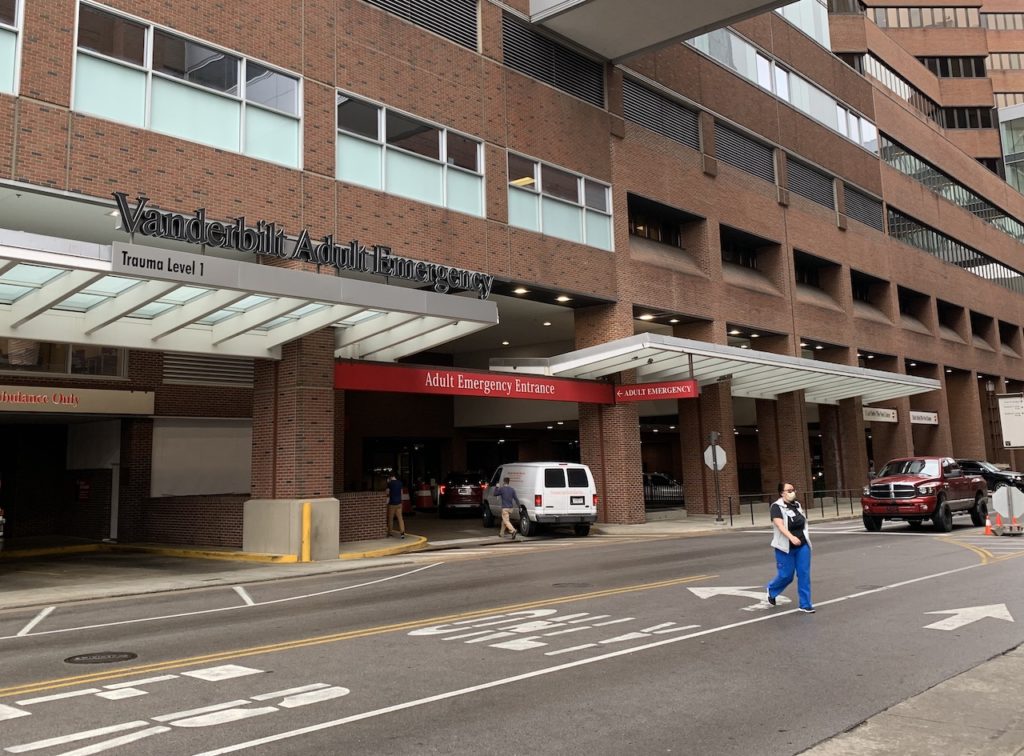
Cost has become no object for COVID-19 testing in Tennessee, with the state government now footing the bill. But tens of thousands were swabbed for the coronavirus before that was the case. And despite Congressional mandates for health plans to cover every dollar of testing, patients are about to get stuck with some surprise bills.
When testing kits were still scarce, Vanderbilt University Medical Center fired up its clinical labs. It almost single-handedly took over testing in Middle Tennessee. Other health systems didn’t even try to compete, even though the tests were supposed to be covered by insurance.
In late March, Congress passed two laws — the Families First Coronavirus Response Act and the CARES Act — that essentially said that not only does testing have to be covered, patients shouldn’t even have to pay a co-pay or deductible. But Vanderbilt’s chief financial officer, Cecelia Moore, says she’s finding that’s frequently not the case.
“As many as half of those patients potentially have some out-of-pocket [cost] either for the tests or for companion services with the test,” Moore says.
The issue comes down to an interpretation of action by Congress and whether it applied to health plans offered by larger employers. Those companies, which usually have at least a few hundred employees, often use their own money to pay claims as a way to drive down costs.
So BlueCross BlueShield of Tennessee may be on an employee’s insurance card, but the insurer is just managing the payments. It’s the employer’s money. These are often called self-funded or self-insured plans.
Exempt From Congressional Mandates
And according to multiple sources, many of the companies with those plans believe they’re exempt from the federal rules.
“In this case, it appears that the law may have left self-insured employers out of certain elements,” says Mike Thompson, CEO of the National Alliance of Healthcare Purchaser Coalitions.
The National Alliance represents self-funded employers. He says some aren’t waiving co-pays and deductibles. But most, he says, are, though maybe only the COVID test itself, and not for the doctor’s visit or the test to rule out the flu.
“Many of them have opted to cover on a first-dollar basis, but in different ways. They may or may not have included the related treatment elements,” Thompson says, though he acknowledges the distinction is lost on patients. “I get why it’s causing confusion.”
Other associations representing employer-funded health plans, including the Business Group on Health, say their members are generally following the spirit of the law.
But health policy experts see no wiggle room.
“It doesn’t matter if it’s a self-funded plan or a fully insured plan, if you get it from a small employer or a large employer, if you buy it on your own in the marketplace,” says Karen Pollitz, a senior fellow with the Kaiser Family Foundation. “All private insurance has to cover 100% of the cost of COVID-19 testing.”
A Difficult Position
Pollitz say she is miffed that employers are trying to argue otherwise.
But they are to Vanderbilt, which did more testing than any health system in Tennessee early on. Finance officials say about half of the self-insured plans are leaving some charges for patients.
So that’s put Vanderbilt in a difficult position. Heather Dunn, who oversees billing as the vice president of revenue cycle, says since mid-March, she’s been holding off on more than $6 million worth of bills.
“I know I’m supposed to be shaking everybody down, but we’re not right now,” Dunn says.
Dunn’s counterparts at other academic medical centers are doing the same thing.
Duke Health confirms to WPLN News that it’s not billing claims related to COVID testing or treatment, citing a lack of clarity in what the patient is responsible to pay.
Given the growing disdain for surprise medical bills, they expect a backlash from vulnerable patients.
“My greatest fear is that patients who are already suffering from the COVID virus or issues after or have lost their job, I’m hesitant to also say your insurance company has passed along this $50 co-pay,” she says. “How would you like to do that?”
Sometimes, the patient is also left with a large deductible to pay, in the hundreds of dollars.
Dunn says she can’t delay the bills forever and that just because the tests are supposed to be free to patients doesn’t mean they have no cost.

